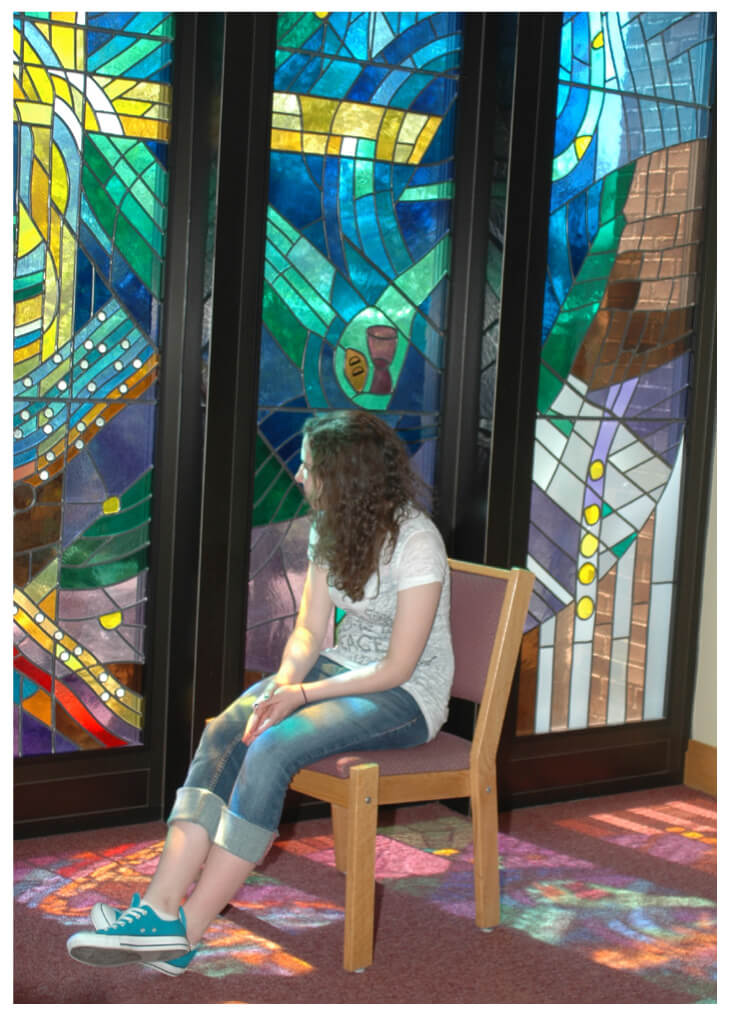
Praying is about more than memorizing the words other people pray; it is about finding one’s own words for being in relationship with God. Other people’s words can help us find our own. The bible has 150 prayers called psalms.
Jesus teaches us the Our Father as an example of words to pray and live. Jesus addresses God very personally and affectionately the same way we talk to our fathers, calling them Dad or Papa and recognizing parents know and care for us.
We still have our own relationship with God. Praying is a way to keep up friendship with God—to text once in a while, to let God in on excitement I’m feeling or worries that won’t go away.
Praying comes from the heart, from our whole selves. In the bible the heart is the inner dwelling place where I am and where I consciously live. The heart stands for the self, the conscious I. The heart is the center deep within where I make decisions and commit to relationships.
In praying we respond to the mystery of God’s love in which we live. God blesses us with life and personal gifts—the ability to sing, sprint, do math, hope, speak, dance, laugh. God blesses us with creation, the evolving cosmos of which we are the future—God’s co-creators.
We bless God for blessing us. In prayers of blessing we recognize the giver of our lives.
Besides blessing God, we can bless one another. We can recognize and affirm each others’ gifts. A classmate plays a melody on the violin that opens my mind to hope. A classmate inspires and organizes a food drive for a local food pantry.
Praying is persistent attention to the mystery in which we live—the diversity of plants, animals, and people; the complexity of the conscious brain and world cultures; the oneness from which all comes. Our world can enchant us. All that we learn can lead to wonder and awe at the Holy Mystery that is God.
Beside blessing, Sunday’s gospel identifies two other kinds of prayer—petition and thanksgiving. Ten lepers cry out to Jesus as he passes by, pleading to be healed. Their prayer of petition identifies their deep need for healing and return to their families. Jesus responds because they ask, sending them to the temple priests who find them whole.
The prayer of blessing is our human response to God’s gifts: because God blesses, the human heart can in return bless the One who is the source of every blessing.
Catechism of the Catholic Church #2626
Only one of the ten returns to thank Jesus. Ironically the one grateful person is a Samaritan, a heretic and outsider most Jews would look down on.
We recognize ourselves in the story. Too often we take the gift of life and the wonder of creation for granted. We are forgetful with the nine, rather than thankful to God with the one.
Saying thank you is important in friendship and important to our relationship with God from whom we creatures have our lives. A thank-you for a meal or for a tutoring session or for a ride is a way to remember and recognize the gift. In prayers of thanksgiving we remember the gifts God gives us in ourselves and the abundance of creation. When we ask God to help someone other than ourselves, our petitions become prayers of intercession.
By prayer of petition we express awareness of our relationship with God. We are creatures who are not our own beginning, not the masters of adversity, not our own last end.
Catechism of the Catholic Church #2629, 2634, 2637, 2639, 2644
